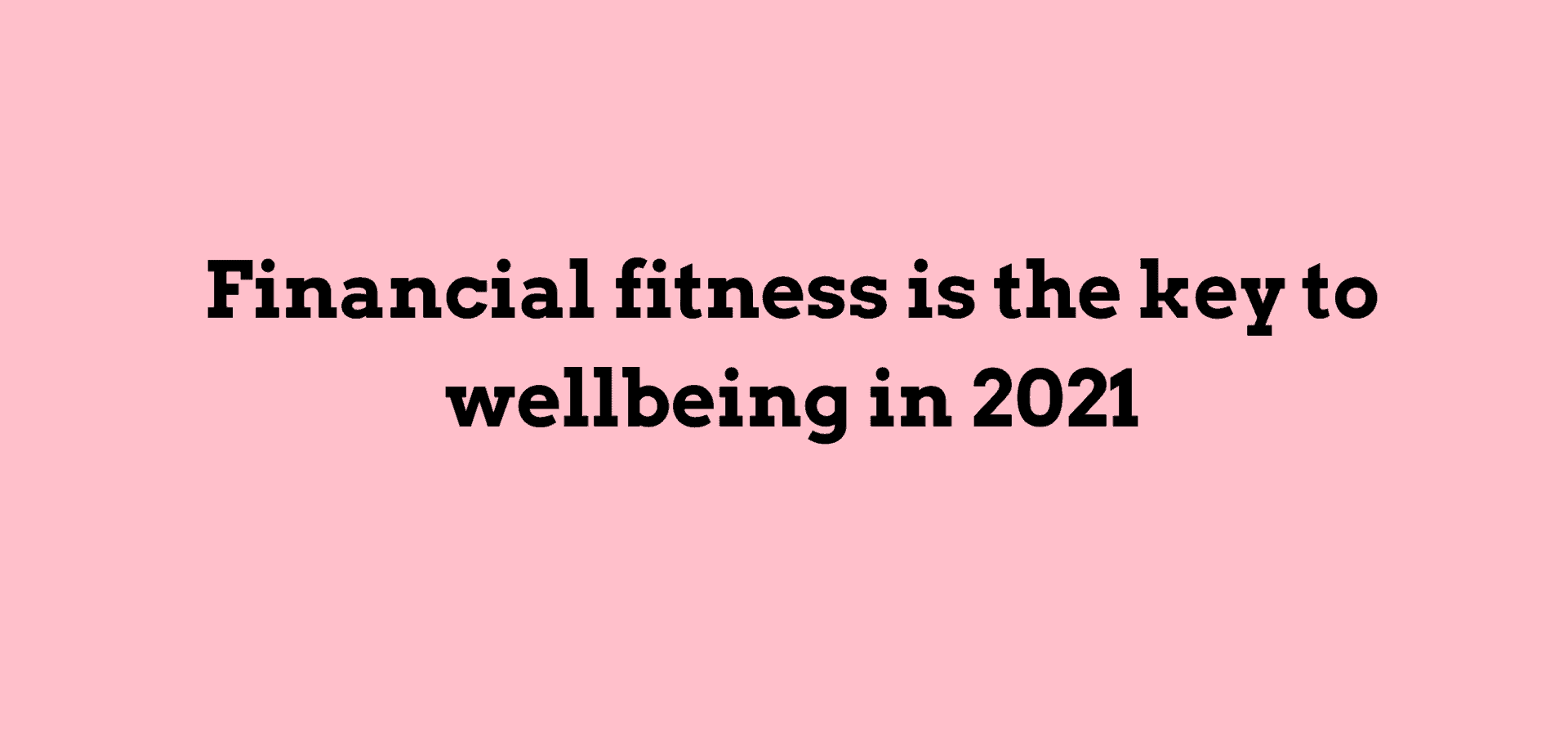

Being ‘better with money’ is a common new year’s resolution but, like most of the other pledges that we make on the first of January, it can quickly fall by the wayside. If you’re looking to reduce money worries and feel more in control in 2021, focusing on your financial fitness and considering some changes that you can make is important – but it’s important to remember that personal finance is personal, so your approach to money should be tailored to you.
View this post on Instagram
The events of 2020 have made many of us more aware of how we manage our finances, whether we’ve seen a positive or negative effect on our finances throughout the pandemic. After a turbulent year, now is a great time to give your finances a bit of an MOT – to clear out any financial skeletons in your closet and make a plan for your future.
For those of us who tend to peek through our fingers when our account balance flashes up on the screen, the thought of getting all of that information out in the open can be a little daunting – but much of the stress and worry that we have about money often stems from not really knowing what we’re dealing with. Take the time and space to look at your income vs your outgoings, and any savings vs any debt.

Whether you overspent a little on your credit card at Christmas, or you’ve been trying to pay off that pesky student overdraft for years, it’s quite normal to have some debt, despite the stigma that often surrounds owing money. It’s easy to avoid thinking or talking about debt, but that rarely helps in paying it off.
Things like checking you’ve got the lowest possible interest rate, communicating with creditors and making a plan to pay it off can help to put your mind at ease, and prioritising paying off high-interest debt when budgeting will make managing your finances easier in the long run.
View this post on Instagram
It can be tempting, particularly with the pressure of a new year, to create a restrictive and unrealistic budget in the hope of paying off debt or building savings at a faster rate. But in a similar way to how crash diets and extreme exercise regimes are often impossible to stick to, super-tight budgets can set you up to fail, denting your financial confidence in the process.
When creating your budget, think about the things in life that you really value and, if possible, make sure you allocate some money for them. Similarly though, if there are things that you wouldn’t miss – that long-abandoned lockdown fitness subscription for example – don’t hesitate to cut them out and put the money to better use.

Photo by Tima Miroshnichenko from Pexels
Budgeting often gets a bad rap – people think of it as boring or laborious, but it needn’t be. Try thinking of your budget as just another way of taking care of yourself, because the peace of mind that comes with knowing what all of your money is doing, and that you have enough to live on, is great for your wellbeing.
While worrying about money can have a negative impact on your mental health, causing anxiety or low mood, feeling confident about money can have a positive effect on how you feel. Sometimes moving from the former to the latter is a slow journey, but it’s so worth it.

Photo by Tim Samuel from Pexels
Another way to improve your financial confidence is to work on building your credit score. This can help you to shift debt to cheaper or 0% interest, as well as being important when looking at applying for mortgages, if buying a house is on your list of financial goals.
There are lots of ways to build your credit score, from checking that you’re on the electoral register to making regular, timely payments.
 Photo by Tim Samuel from Pexels
Photo by Tim Samuel from Pexels
Putting all of your savings into one big pot is fine, but you might find it more motivating to set specific savings goals, and create a ‘pot’ or ‘pocket’ for each. This is something that lots of banking and saving apps allow, with some even tracking your progress towards your goal by percentage. For example, starting a Christmas fund now might save you a lot of headaches come December, or creating an emergency fund could put your mind at ease in the event of more upheaval.
None of us know what’s waiting for us this year, but it’s important to take control where we can. Make your financial fitness a priority in the new year and reap the benefits long into the future.

Renting with us is simple and straightforward with standard long-term tenancies and a resident’s only break clause.
Our relationship managers will guide you through the whole renting process, from start to finish. With us there’s no middle parties and our on-site team is always there to help once you move in. Speak to a member of the Get Living team today to find a home for rent.
